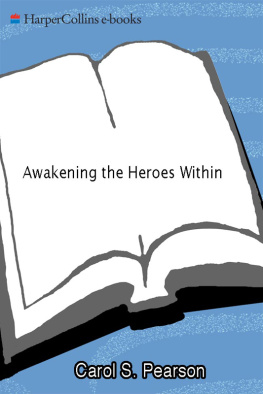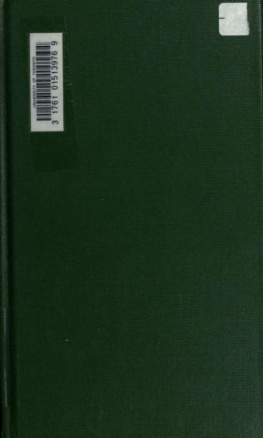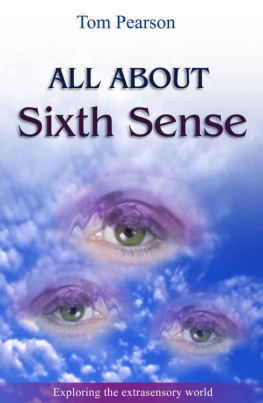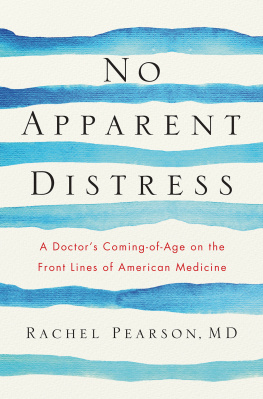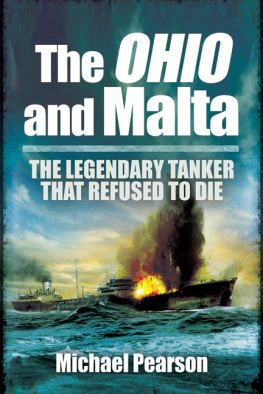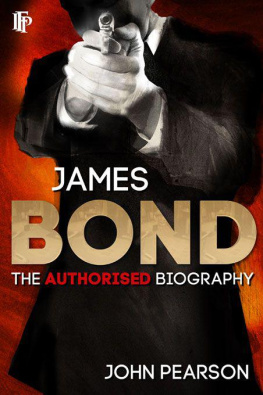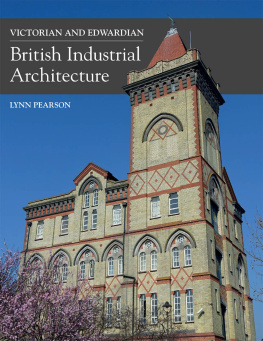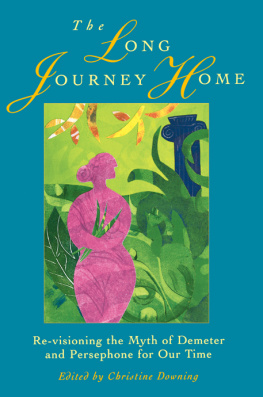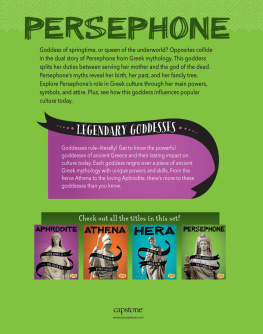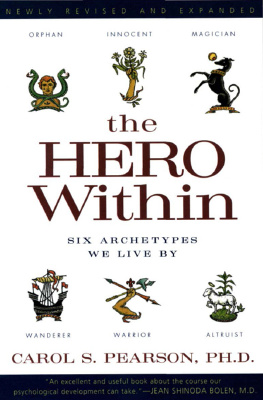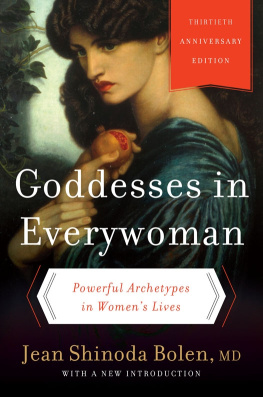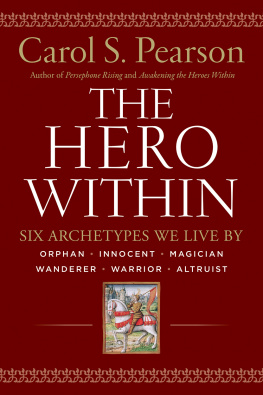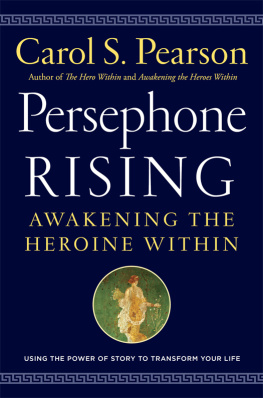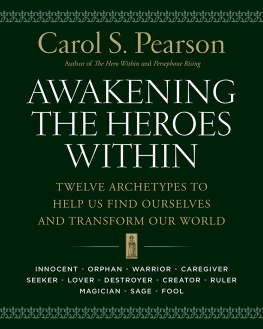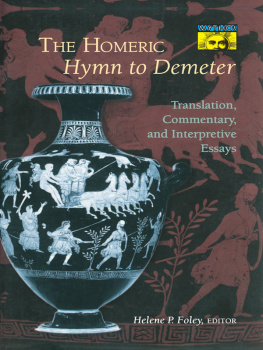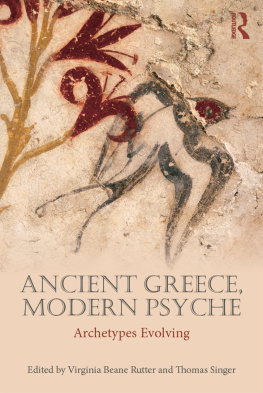The hunt isnt over until both your heart and your belly are full.
Some people, we say, have soul. They have loved, they have suffered, they have a deep sense of lifes meaning. Perhaps most important, they know who they are.
Other people seem to have lost their souls. They may have material possessions-the right house, the right car, the right job, the right clothes; they may even have a stable family life and be religious. But inside themselves, they feel empty. Even when they go through the right motions, it is movement without meaning.
Still other people love and suffer and feel life intensely; but they never really get their lives together. They cannot seem to find work or personal relationships that truly satisfy them, and so they feel constantly constrained. Although they may be connected to their souls, they feel cut off from the world.
Saddest of all are people who never learn how to make their way in the world or how to be true to their own souls. Their lives are empty and unrewarding-yet unnecessarily so: virtually all of us are capable of finding meaning and purpose in our lives and in the life of the human community.
We find a model for learning how to live in stories about heroism. The heroic quest is about saying yes to yourself and, in so doing, becoming more fully alive and more effective in the world. For the heros journey is first about taking a journey to find the treasure of your true self, and then about returning home to give your gift to help transform the kingdom-and, in the process, your own life. The quest itself is replete with dangers and pitfalls, but it offers great rewards: the capacity to be successful in the world, knowledge of the mysteries of the human soul, the opportunity to find and express your unique gifts in the world, and to live in loving community with other people.
The heros journey is first about taking a journey to find the treasure of your true self .
Awakening the Heroes Within is for people at all stages of lifes journey: it is a call to the quest for those just considering or beginning the journey; it provides reinforcement for longtime journeyers; and it is a tool for people already far along on their journeys who are looking for ways to share and pass on what they have learned. Each journey is unique, and each seeker charts a new path. But it is infinitely easier to do so having at least some knowledge about the experiences of those who have gone before. When we learn about the many different heroic paths available to us, we understand that there is room for all of us to be heroic in our own unique ways.

Stories about heroes are deep and eternal. They link our own longing and pain and passion with those who have come before in such a way that we learn something about the essence of what it means to be human, and they also teach us how we are connected to the great cycles of the natural and spiritual worlds. The myths that can give our lives significance are deeply primal and archetypal and can strike terror into our hearts, but they can also free us from unauthentic lives and make us real. If we avoid what T. S. Eliot called this primitive terror at the heart of life, we miss our connection to lifes intensity and mystery. Finding our own connection with such eternal patterns provides a sense of meaning and significance in even the most painful or alienated moments, and in this way restores nobility to life.
The paradox of modern life is that at the same time that we are living in ways never done before and therefore daily recreating our world, our actions often feel rootless and empty. To transcend this state, we need to feel rooted simultaneously in history and eternity.
This is why the myth of the hero is so important in the contemporary world. It is a timeless myth that links us to peoples of all times and places. It is about fearlessly leaping off the edge of the known to confront the unknown, and trusting that when the time comes, we will have what we need to face our dragons, discover our treasures, and return to transform the kingdom. It is also about learning to be true to ourselves and live in responsible community with one another.
In classical myth, the health of the kingdom reflected the health of the King or Queen. When the Ruler was wounded, the kingdom became a wasteland. To heal the kingdom, it was necessary for a hero to undertake a quest, find a sacred object, and return to heal or replace the Ruler. Our world reflects many of the classic symptoms of the wasteland kingdom: famine, environmental damage to the natural world, economic uncertainty, rampant injustice, personal despair and alienation, and the threat of war and annihilation. Our kingdoms reflect the state of our collective souls, not just those of our leaders. This is a time in human history when heroism is greatly needed. Like heroes of old, we aid in restoring life, health, and fecundity to the kingdom as a side benefit of taking our own journeys, finding our own destinies, and giving our unique gifts. It is as if the world were a giant puzzle and each of us who takes a journey returns with one piece. Collectively, as we contribute our part, the kingdom is transformed.
The transformation of the kingdom depends upon all of us. Understanding this helps us move beyond a competitive stance into a concern with empowering ourselves and others. If some people lose and do not make their potential contribution, we all lose. If we lack the courage to take our journeys, we create a void where our piece of the puzzle could have been, to the collective, as well as our personal, detriment.
The Journey
Heroism is also not just about finding a new truth, but about having the courage to act on that vision. That is, in a very practical way, why heroes need to have the courage and care associated with strong ego development and the vision and clarity of mind and spirit that come from having taken their souls journeys and gained the treasure of their true selves.
Most people know that heroes slay dragons, rescue damsels (or other victims) in distress, and find and bring back treasures. At the close of the journey, they often marry. They have reached a happy ending to their journey in which their new renewing truth becomes manifested in the life they now live-in community with their new family and with other people. This new truth they bring back renews their own lives and also the lives of their kingdoms, and thereby affects everyone they touch.
This mythic pattern is true for our personal journeys, although the happy ending is usually short lived. As soon as we return from one journey and enter a new phase of our lives, we are immediately propelled into a new sort of journey; the pattern is not linear or circular but spiral. We never really stop journeying, but we do have marker events when things come together as a result of the new reality we have encountered. And each time we begin our journeys, we do so at a new level and return with a new treasure and newfound transformative abilities.
What the Journey Requires
When we believe that our journeys are not important and fail to confront our dragons and seek our treasures, we feel empty inside and leave a void that hurts us all. Psychologists in the leveling modern world have a name for the rare case of someone with delusions of grandeur, but do not even have a category for the most pervasive sickness, the delusion that we do not matter. While it is true that no one of us is more important than anyone else, we each have an important gift to give-a gift we are incapable of giving if we fail to take our journeys.

